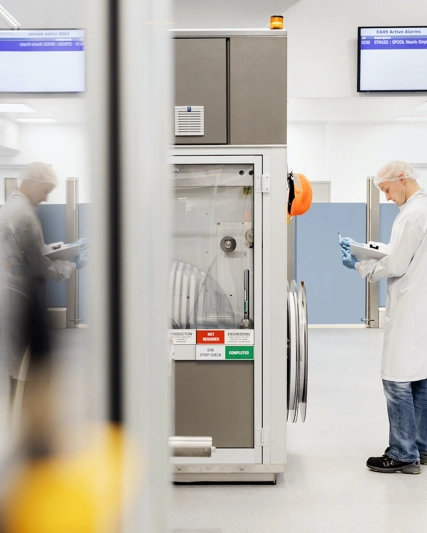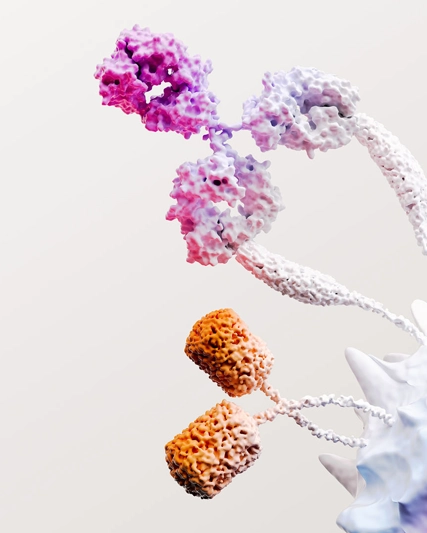GSK to become a founding partner of Fleming Initiative to fight antimicrobial resistance (AMR)
- Company makes £45m pledge to support the Fleming Initiative - a new global network of scientific, technology, clinical, policy and public engagement expertise to develop new AMR interventions
- AMR is an urgent global public health threat, with potential to cause 10m deaths annually by 2050 without effective action
- Partnership will bring together GSK’s leadership in prevention and treatment of infectious diseases with Imperial College London and Imperial College Healthcare NHS Trust’s world-class clinical and research expertise
Global biopharmaceutical company, GSK, will become the first founding partner of the Fleming Initiative, an innovative and collaborative approach led by Imperial College Healthcare NHS Trust and Imperial College London to tackle antimicrobial resistance (AMR) around the world.
AMR is widely recognised, including by the World Health Organization, as an urgent global public health threat. In 2019 there were an estimated 1.2 million deaths directly attributable to drug-resistant bacterial infections and as many as 10 million people could die annually from AMR by 2050, resulting in global economic damage of up to $100 trillion by 2050 without effective action.1
The Fleming Initiative’s unique and transformative approach will bring together world-class scientific, technology, policy and behavioural science expertise with clinical experience in a global network of centres to find, test, and scale solutions to AMR.
GSK’s £45 million pledge would be available for approved projects to harness new technology including AI to better interpret and use complex scientific data, identify new opportunities to develop novel treatments and interventions, improve understanding of how drug-resistant infections are transmitted and can be prevented, and understand how better surveillance approaches might improve detection and tracking of infections. The Initiative will also have a strong focus on diagnostics so that the right antimicrobial drugs are given to those who need them, and on education and public engagement to support behavioural change to reduce AMR.
The Initiative is particularly focused on supporting countries most severely affected by AMR where poverty, climate change and health inequality exacerbate the issues caused by drug resistant infections. Taking an enabling and scaling role, the first Fleming Centre will be based at St Mary’s Hospital in London, at the site of the discovery of penicillin by Alexander Fleming in 1928. The Centre will work closely with a network of centres in strategic locations around the world to catalyse worldwide action.
For over 70 years, GSK has been involved in discovering, manufacturing, and making antibiotics available to patients. GSK legacy companies played important roles in the research and manufacture of penicillin and during the Second World War the company supplied around 80% of the UK’s penicillin. GSK currently has the largest AMR-relevant research and development pipeline in the industry, with more than 30 medicines and vaccines in development, 12 of which target pathogens deemed 'critical' or 'urgent' by WHO and the US Centres for Disease Control and Prevention.
Emma Walmsley, GSK CEO said: “This will be an important collaboration for GSK building on our long- standing commitment to tackling AMR and our focus on disease prevention. The Fleming Initiative will bring together global resources and expertise from across different sectors to better understand the factors contributing to this growing threat and most importantly, drive action and solutions. We are proud to be a founding partner, and hope others will join us to support this urgent priority”.
GSK’s pledge was announced on Thursday 16th May by Imperial’s Professor the Lord Darzi of Denham, Executive Chair of the Fleming Initiative, and GSK CEO Emma Walmsley, at an event celebrating global efforts and initiatives to tackle AMR convened by the UK Department for Health and Social Care and the Royal Society. The Prince of Wales, Patron of the appeal to create The Fleming Initiative will also be in attendance.
Lord Darzi, Chair of the Fleming Initiative, said: “Alexander Fleming’s extraordinary discovery was brought to the world through partnership with industry. As we approach the centenary of his breakthrough, we are delighted that GSK will be a founding partner for the Fleming Initiative – bringing their invaluable expertise and experience to help ensure collective action and protect generations to come.”
Professor Tim Orchard, Chief Executive of Imperial College Healthcare NHS Trust said: “Antimicrobial resistance remains one of the biggest challenges we face in the NHS and other healthcare systems around the world. The support of a global biopharma company with a proven history in treatment for infectious disease is a major boost to our goal to find new solutions and interventions for tackling drug-resistant infections. The Fleming Centre, based at our St Mary's Hospital, where Sir Alexander Fleming discovered penicillin nearly 100 years ago, will be at the heart of the Initiative and part of a rapidly growing ecosystem of research and innovation that will benefit both local and global communities.”
Professor Hugh Brady, President of Imperial College London, said: “Antimicrobial resistance is one of the most serious challenges facing humanity. The Fleming Initiative will see Imperial build on its impressive track record of societal engagement, policy research and convergence science to tackle this issue head-on. Importantly, it is a global initiative involving partnership at unprecedented scale with leading pharmaceutical companies such as GSK, research funding agencies, philanthropists, health systems and governments.
Health Minister Andrew Stephenson said: “AMR is one of the biggest threats to our society and it’s excellent that private organisations are supporting global efforts to tackle it. I applaud GSK for providing significant funding to support the brilliant work of the Fleming Initiative, bringing together world-renowned science, research and technology to protect the international community.”
Notes to editors:
About antimicrobial resistance (AMR)
AMR occurs when microbes including bacteria, viruses, fungi and parasites change over time and no longer respond to the drugs and treatments society relies on to kill them and prevent disease. If measures are not urgently implemented to combat AMR the consequences will be far reaching. Uncomplicated infections and minor injuries could once again become life-threatening.
AMR already kills over one million people around the world each year and is a growing challenge in treating leading infectious disease killers such as tuberculosis, E. coli, and MRSA (Methicillin-resistant Staphylococcus aureus).
It has been caused in part by the widespread misuse and overuse of antibiotics and other antimicrobial medicines, in humans and livestock, which has led to the global spread of drug-resistant microbes. To effectively tackle AMR, global awareness and behaviour change is needed alongside rapid scientific advances.
About the Fleming Centre
At the centre of this global network will be the new Fleming Centre, set to open at St Mary’s Hospital in London in 2028, helping to mark the centenary of the discovery of penicillin at the hospital by Sir Alexander Fleming. As Patron of the appeal to create the Fleming Initiative, His Royal Highness Prince William, the Prince of Wales, is supporting efforts over the next four years to develop this global HQ for the Fleming Initiative programmes. Launched through a partnership between Imperial College Healthcare NHS Trust and Imperial College London, the Fleming Centre will combine cutting edge research, public engagement, and work with policymakers to drive a global change.
About GSK
GSK is a global biopharma company with a purpose to unite science, technology, and talent to get ahead of disease together. Find out more at gsk.com.
About Imperial College London
Imperial College London is a global top ten university with a world-class reputation. Imperial’s 22,000 students and 8,000 staff are working to solve the biggest challenges in science, medicine, engineering and business.
Imperial ranks sixth in the 2024 QS World University Rankings and eighth in the 2024 Times Higher Education World University Rankings. The 2021 Research Excellence Framework (REF) found that it has a greater proportion of world-leading research than any other UK university. It also received a Gold Award in the 2023 Teaching Excellence Framework (TEF). Imperial was named University of the Year in the Daily Mail University Guide 2024, University of the Year for Graduate Employment in The Times and Sunday Times Good University Guide 2024, and awarded a Queen’s Anniversary Prize for its COVID-19 response.
About Imperial College Healthcare NHS Trust
Imperial College Healthcare is one of the largest NHS Trusts in England, with over 15,000 staff providing acute and specialist healthcare to over one million people a year.
The Trust runs five hospitals in central and west London - Charing Cross, Hammersmith, Queen Charlotte's and Chelsea, St Mary's and the Western Eye.
The Trust also hosts the National Institute for Health and Care Research Imperial Biomedical Research Centre, in partnership with Imperial College London.
Find out more: www.imperial.nhs.uk
Contact details:
Simon Moore, GSK: simon.j.moore@gsk.com | +44 (0)7788387445
Jane Houghton, The Fleming Initiative: jhoughton@milltownpartners.com | +44 (0)7587220626


